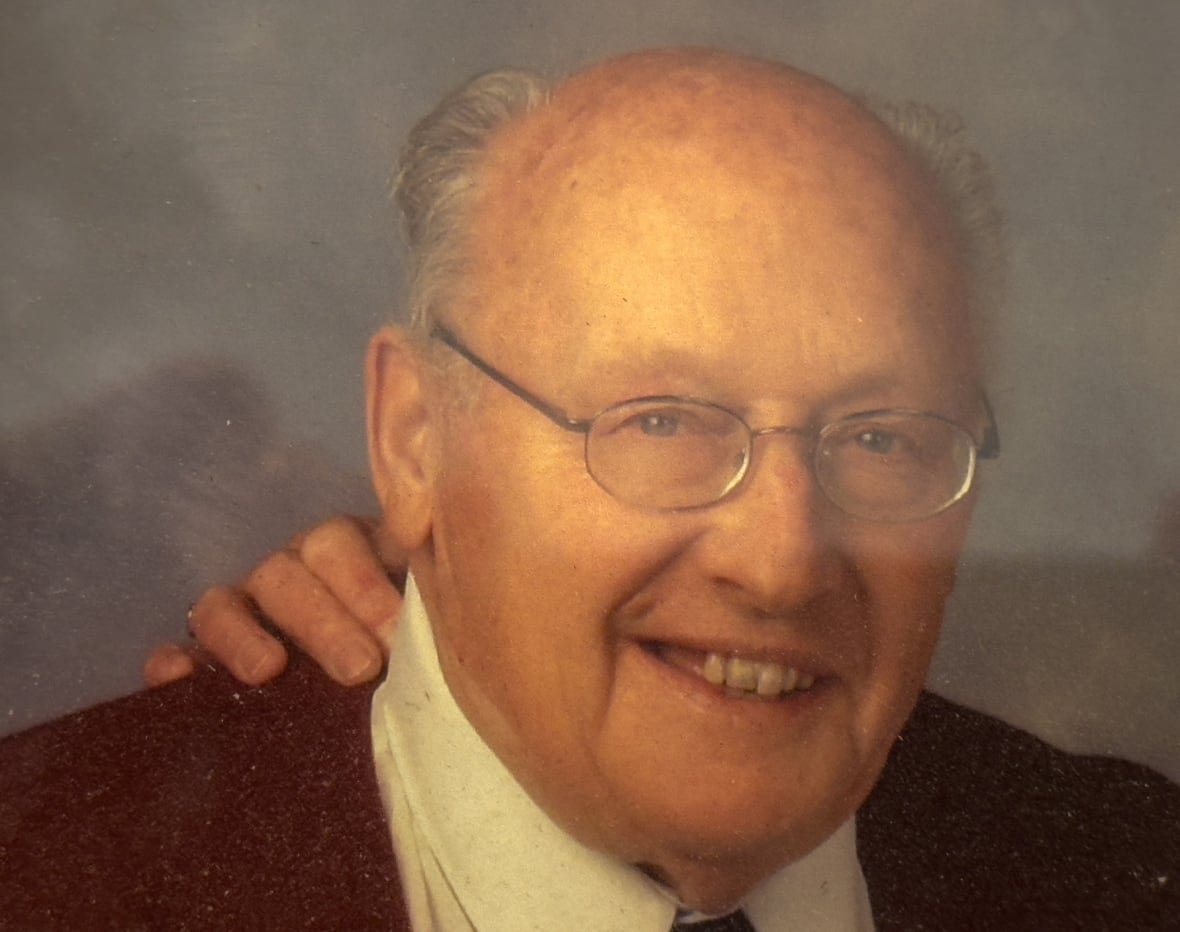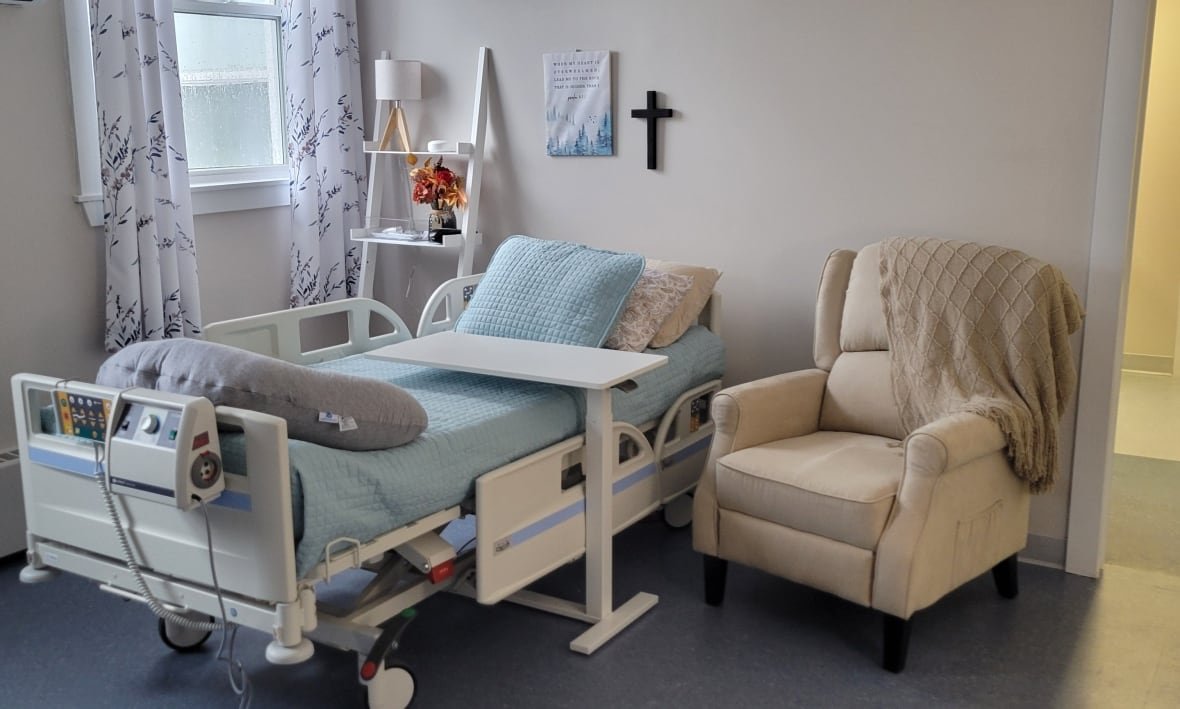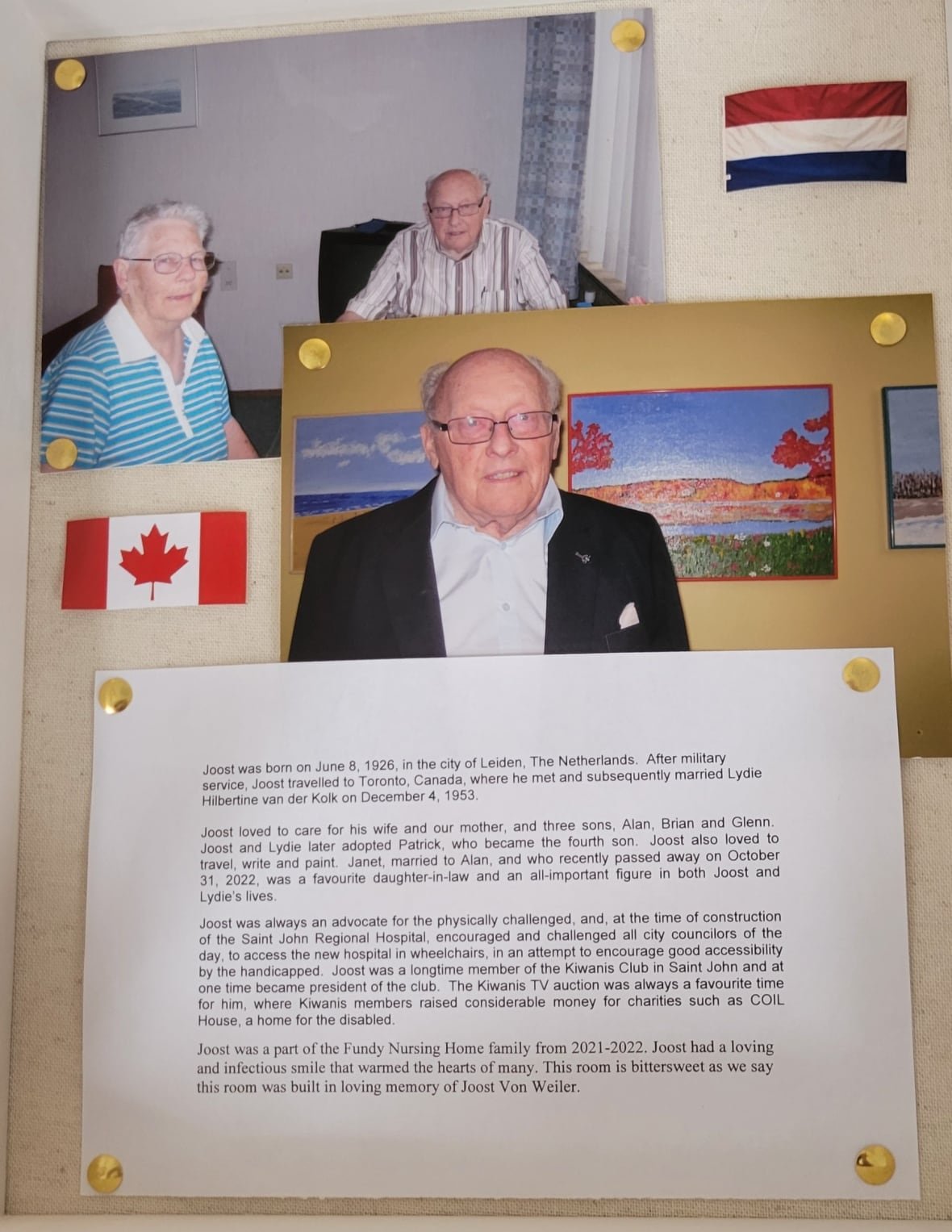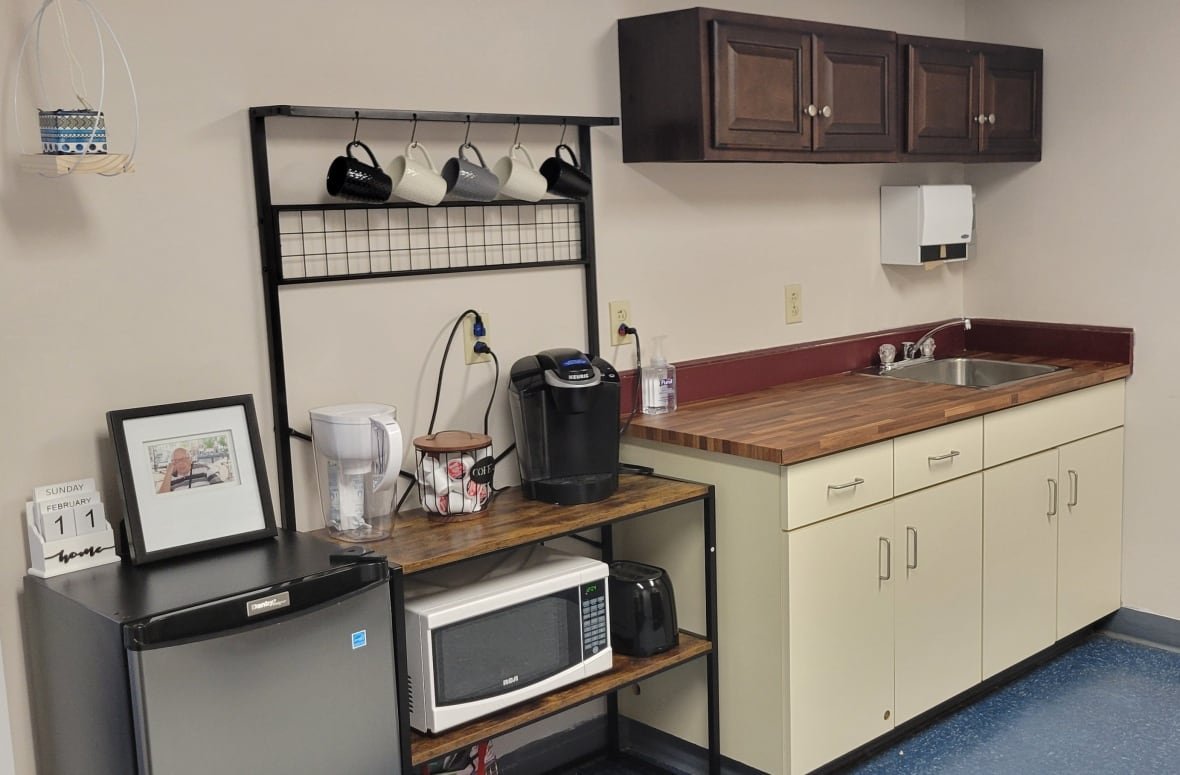The moment brothers Alan and Glenn von Weiler saw the palliative care room at their father’s former nursing home
— created in his memory — was one for the books, they say.
“I think my dad would have been so happy,” Glenn said. “My dad believed in giving back to the community. He did that all his life, and now he was able to do it posthumously.”
But just over a year after they saw the new palliative care room at the Fundy Nursing Home in Blacks Harbour, the brothers have a sour taste in their mouths.
They learned from staff at the home that the room has been taken apart.
In December 2022, Alan and Glenn’s father, Joost, died after living at the home for a while.
Shortly before his death, the brothers were so pleased with the care he had received from staff that they decided to make a $50,000 donation to the Fundy Nursing Home.

The brothers, who live in Saint John, about 70 kilometres east of the home, spoke with the administrator at the time and ultimately decided on a palliative care room. The money would go into a trust set aside for the room.
“It’s life-changing for the families, so, you know, they deserve respect — they’re not numbers, they’re people,” Alan said.
The largest expenses for the project were the $15,000 in renovations that had to be done and the specialized palliative care bed, which cost about $15,300.
Other features of the room included a pull-down, or Murphy bed, kitchenette items, and a heat pump.
A shadowbox with their father’s photo, a biography, and some of the paintings he did during his life were also added.
Alan and Glenn von Weiler donated $50,000 to their dad’s nursing home for a palliative care room in his name. But around 14 months later, they got word that the room was disassembled.
On March 7, 2024, the palliative care room opened, with the von Weiler brothers in attendance.
Not only did the room have everything a family could need for loved ones at the end of their lives, they said, but it also had a homey atmosphere that didn’t come with regular rooms for residents.
But recently, the von Weilers were informed by staff that the room had been disassembled — something the brothers never expected.
“The enthusiasm from the staff was phenomenal,” Alan said of the palliative care room. “How could I ever think that someone would go in and just take it apart?”
The von Weilers wanted to get official confirmation of the dismantling, so they contacted Constance Gilman, the current administrator for the nursing home.
In response, they received a letter, which they shared with CBC News.
“I would like to apologize to your family about the misinformation that was shared with you, and would like to take the time to explain to you what the home plans to do to ensure that this important service is still in place and that your donation is not forgotten,” Gillman wrote.
She went on to say that the palliative care bed was being used for a non-palliative care resident because it was more comfortable for that person.
“But the problem is, if you have someone coming up that needs a palliative care bed … that bed’s not going to be available,” Alan said. Because you can’t remove a patient from a bed so another one can take the bed.
He said the bed, with a special mattress to prevent bed sores, was specifically for palliative residents.
Gilman’s letter said that to avoid causing discomfort, the home didn’t want to transfer a palliative care resident to the new bed.
Brothers understand move
She also said the palliative care room had been moved to another location with a wider doorway, so resident beds could be rolled into it. The room was now closer to the nursing desk to “minimize the risk” of a resident being “forgotten,” she said.
The brothers said the former administrator chose a location a little removed from the general traffic area to provide more privacy for families.
But even so, Glenn said, he understands that patient health has to come first and moving the room was understandable, if it had the same fixtures as the previous one.
Gilman’s letter said the kitchenette items would be moved to the new space, but the Murphy bed was broken, so if families wanted to stay overnight, a sleeper chair could be rolled in.
The art and the memoriam shadowbox would be put back as well, the letter said.

After reading the letter, the von Weilers asked to see the new room.
“It was basically an empty room with a recliner in it and a small little kitchenette,” Glenn said. “If someone needed a palliative care room that day, it was not available.
“I don’t think that you should shut something down without opening up the new one.”
CBC News requested an interview with Gilman but did not receive a response.
The von Weilers are still grateful for the care their father received while at the nursing home, but this experience makes them think they would have chosen a different location to donate to, had they known what was going to happen.

They wonder if anything would have been different if they’d had a written contract outlining the request.
The agreement with the home was a verbal one, aside from a receipt from the home that said, “Donation to memorial fund palliative care room.”
But legally speaking, there isn’t anything that can be done in this situation, according to Toronto business lawyer Jonathan Kleiman.
A promise to do something specific with the donated money could be enforceable, he said, but without a proper contract, it’s a flippant promise.

And even with a proper written agreement, Kleiman said, it’s unlikely the contract would have specified a specific length of time that the room had to remain.
“I find it very hard to believe that the nursing home meant to offer anything in perpetuity,” Kleiman said. “So all the more reason to have something in writing, so you understand what you guys are getting, and there’s no misunderstandings.”
The von Weilers believe this situation will make them more careful with future donations. They’ll ask more questions and get things in writing.
One of the most upsetting parts of the experience for the von Weilers was how they found out — from a staff member and not management.
“I think it’s just respect,” Glenn said. “If you have people in the community investing in the community, I think that they deserve to know what’s going on.”
Alan continued: “If people make a donation, and then it’s not used for what it’s meant to be used for, people are going to stop donating. … We don’t want that.”

